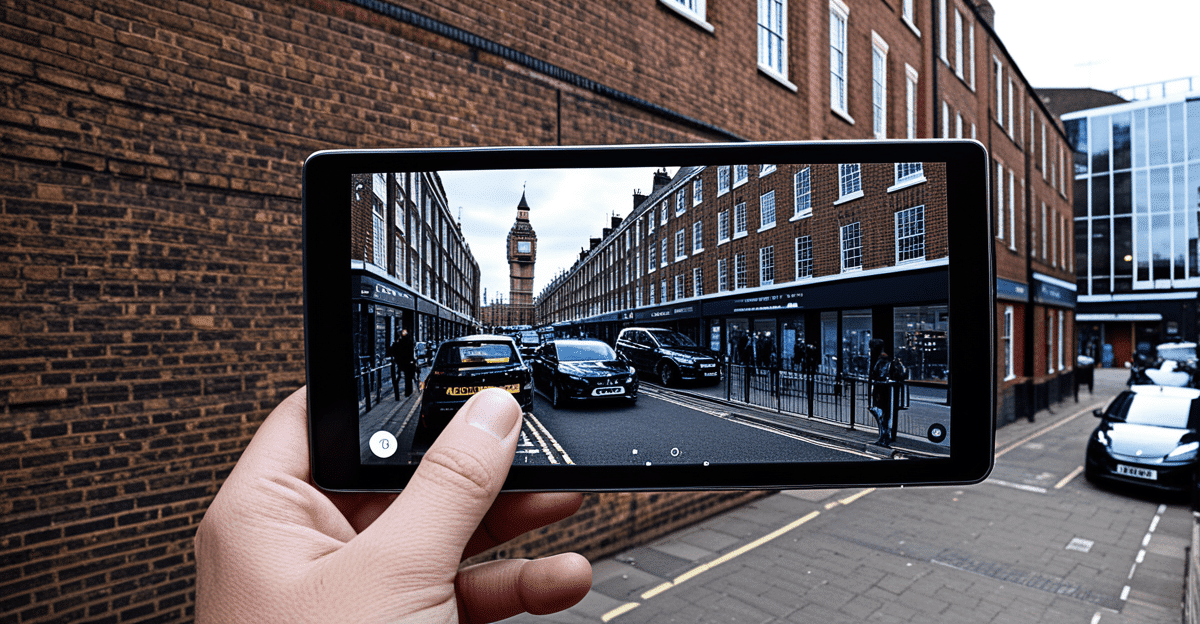Overview of Technological Advancements in Urban Living
In recent years, technological advancements have significantly impacted urban living, reshaping the way cities operate and enhancing residents’ quality of life. Key technology trends, such as the Internet of Things (IoT) and artificial intelligence (AI), are driving innovation in urban environments across the United Kingdom.
UK innovations are focusing on creating smart cities that leverage technology to improve infrastructure, public services, and overall urban management. These initiatives aim to integrate various technologies to make cities more efficient, sustainable, and livable. For instance, IoT-enabled streetlights can reduce energy usage by adjusting brightness based on real-time data, while AI-driven traffic management systems enhance traffic flow and reduce congestion.
This might interest you : How is UK technology impacting the global market?
The importance of technology in urban living cannot be overstated. It plays a crucial role in addressing challenges such as pollution control, waste management, and efficient public transport systems. By adopting cutting-edge solutions, cities can provide a higher standard of living and address the growing needs of urban populations.
Overall, as technological innovations continue to evolve, they hold the potential to transform urban landscapes in the UK, making them more responsive, inclusive, and adaptive to the challenges of modern living. The focus remains on harnessing technology to create environments that offer improved sustainability, connectivity, and accessibility for all citizens.
Also read : How is UK technology impacting the global market?
Smart City Technologies
As urban environments evolve, smart city technologies play a crucial role in fostering more connected and efficient living spaces. By harnessing innovations like the Internet of Things (IoT) and artificial intelligence (AI), cities can enhance infrastructure, public services, and overall management.
Internet of Things (IoT) in Urban Infrastructure
The Internet of Things (IoT) revolutionizes urban infrastructure with its capability to enable seamless connectivity and real-time data exchange. IoT applications in public services can lead to more efficient resource management and improved citizen experiences. For example, IoT sensors in waste management systems help optimize trash collection routes, significantly reducing costs and environmental impact. In the UK, cities like London have implemented IoT-enabled streetlights that adjust brightness based on surrounding conditions, resulting in notable energy savings.
Data-Driven Urban Planning
Data analytics is pivotal in data-driven urban planning, offering municipalities the tools to make informed decisions. By analyzing patterns from various data sources, city officials can design better public spaces and improve service delivery. Effective usage of data analytics is evident in London’s efforts to manage transportation systems, using insights to address congestion hotspots effectively and optimize public transport schedules.
Integration of AI in City Services
Artificial intelligence (AI) is a key driver in transforming public safety and operational efficiency within cities. AI-powered surveillance systems help monitor urban areas to prevent crime, while AI algorithms improve traffic management by predicting congestion and suggesting alternative routes. This integration has proven beneficial, notably in cities like Manchester, where AI is used to enhance emergency response times, thereby increasing overall urban safety and efficiency.
Sustainable Solutions for Urban Environments
Incorporating sustainable technology into urban environments is crucial for creating eco-friendly cities. By adopting innovative practices, urban areas are not only adapting to environmental demands but also enhancing residents’ quality of life.
Renewable Energy in Urban Areas
Cities across the UK are leading the way with renewable energy initiatives. Implementing solar and wind energy solutions is becoming more prevalent in urban settings, providing numerous benefits. Solar panels on buildings and urban wind farms contribute to reducing carbon emissions and lowering energy costs. By harnessing these resources, cities can achieve a sustainable energy model that caters to the increasing demand.
Green Infrastructure and Biodiversity
Green spaces play a pivotal role in urban planning, offering both environmental and social benefits. The inclusion of urban forestry and green roofs improves air quality and supports biodiversity. Cities such as Manchester are investing in green corridors and rooftop gardens, promoting wildlife habitats while enhancing aesthetic appeal and residents’ well-being.
Waste Management Technologies
Innovations in waste management are addressing the challenges of recycling and waste reduction. UK cities are deploying advanced systems to monitor and optimize waste collection processes. Technologies like smart bins and automated waste separation machines are part of these efforts, ensuring more efficient recycling and minimizing landfill dependency. These systems exemplify effective waste management technologies that set a standard for urban sustainability.
Transportation Innovations
Urban transport systems are experiencing a transformation with the advent of smart mobility solutions that enhance efficiency and sustainability. In cities across the UK, these innovations are redefining how people commute, reducing environmental impact and improving overall quality of life.
Electric Vehicles and Charging Infrastructure
The growth of electric vehicle (EV) adoption in urban areas is a testament to the evolving transportation landscape. Electric vehicles offer environmentally friendly alternatives to traditional petrol and diesel cars, making them an attractive choice for city dwellers. The expansion of charging infrastructure is crucial to support this growth, with more charging stations appearing in strategic locations across UK cities. Government incentives play a significant role in this expansion, offering grants and subsidies to encourage EV purchases and the development of charging facilities.
Intelligent Transport Systems (ITS)
Intelligent Transport Systems (ITS) are revolutionizing traffic management by utilizing technology to enhance traffic flow and safety. These systems integrate data from various sources to provide real-time traffic updates, optimize signal timings, and reduce congestion. Cities like Birmingham have successfully implemented ITS solutions, demonstrating substantial improvements in reducing traffic delays and enhancing commuter safety.
Public Transportation Enhancements
Technological improvements in public transit systems are making transportation more accessible and efficient. Smart ticketing solutions, such as contactless payments and digital passes, simplify the commuting experience, while real-time information systems keep passengers informed about arrivals and delays. Case studies from cities like Glasgow highlight successful implementations of these enhancements, resulting in increased commuter satisfaction and ease of access to public transport.
Impact on Quality of Life and Accessibility
The integration of technology into urban environments significantly enhances residents’ quality of life by making cities more livable and efficient. Quality of life improvements are often achieved through advancements in public services, such as smart traffic management systems that reduce congestion and improve air quality. By adopting these technologies, cities not only improve the everyday experiences of residents but also boost economic growth and sustainability.
Enhancements in urban accessibility are also a vital benefit of technological advancements. Smart city solutions often include provisions for disabled individuals, ensuring that public transportation and infrastructure are accessible to all. For instance, intelligent public transport systems equipped with real-time updates and accessible platforms make commuting easier for those with mobility challenges.
Community engagement plays a crucial role in the successful adoption of technology in urban settings. When communities are involved in the development and implementation process, it ensures that innovations meet local needs and foster community engagement. This interaction enhances citizens’ satisfaction and personal connection to technological changes in their environments, ultimately leading to more sustainable and inclusive urban growth.
Future Prospects for Urban Living Technologies
As cities continue to evolve, future technologies are set to play a vital role in transforming urban living. These advancements promise to significantly reshape urban environments by enhancing urban development and addressing modern challenges.
Innovations on the Horizon
Emerging technologies such as 5G connectivity and smart grids are poised to revolutionize how cities operate. These innovations hold great potential for making urban areas more efficient and responsive to residents’ needs. Additionally, autonomous vehicles may dramatically alter city landscapes by reducing reliance on personal cars, thus decreasing congestion and freeing up urban spaces for other uses.
Challenges and Considerations
Implementing new technologies in urban settings often faces barriers such as cost, infrastructure limitations, and public acceptance. Moreover, ethical considerations surrounding data privacy and surveillance systems are critical to address to ensure public trust. Cities must find a balance between innovation and maintaining residents’ privacy to successfully integrate these technologies.
The Role of Government and Policy
Government involvement is crucial in fostering the adoption of smart and sustainable technologies. Developing supportive policies can help guide urban development efforts and encourage the integration of cutting-edge solutions. Policies promoting public-private partnerships and offering funding for innovation will be key to realizing the full potential of these technology trends in urban living.






